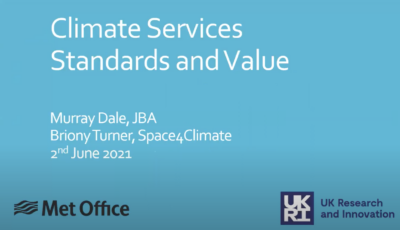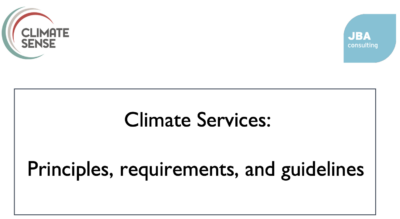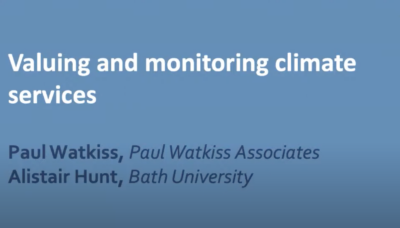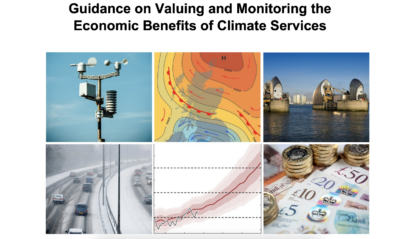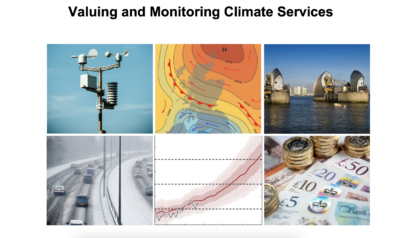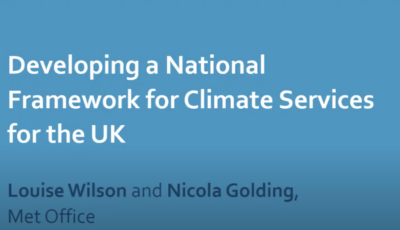Welcome and Introduction
Since climate change has been recognised as a problem, the amount of information being generated about it has grown exponentially. Climate services refer to the provision of information, data, and knowledge about climate conditions, variability, and change to individuals, organizations, and communities. They aim to support decision-making processes and enable informed actions related to climate-related risks and opportunities. A community providing an information service has started to emerge in recent years to standardise, qualify, quantify, and streamline this wealth of information. But, can they be measured? Can they be valued? Can they be structured? In this short module, we begin to look at some of these issues using resources developed through the UKCR programme. We will look at what climate service standards are, attempts to value and monitor climate services, and the work being done to develop a national framework for climate services for the UK.
In this first recorded webinar, Murray guides us through the research he did on climate services, what they are and how standards can be developed. As a climate service provider Briony Turner from Space4Climate reflects on what Murray’s research means for the UK space industry.
As highlighted in a report jointly produced by Climate Sense and JBA Consulting: Climate services have the potential to provide considerable support to human and planetary security by significantly improving climate-informed decision-making processes. When delivered and used appropriately, climate services can therefore enhance societal benefits, reduce social deficits and reduce climate related losses. If delivered and used ineffectively providers of climate services run the very real risk of contributing to poor decision-making, some of which could have harmful consequences for decades to come. It is critical therefore that climate service providers deliver a service that is regarded by climate service users as being robust, reliable, credible, understandable, meaningful, and honest.
In their report: “Climate Services: Principles, requirements, and guidelines”. We can get a better understanding of how we could ensure that those delivering and engaging with climate services know what these aspects mean. The report can be accessed by clicking on the image above.
Developing this thinking on the role and value of climate services, this next recorded webinar looks at quantifying the financial and economic benefits of different climate services.
The recorded webinar is in support of a bigger report that Paul and Alistair authored on the same subject. You can read the guidance details from the full report by clicking on the image above to access the PDF.
The full report can be accessed by clicking on the image below:
This recorded webinar focuses on whether there is a need for a UK national framework for climate services. The findings suggest that the creation of a National Framework for Climate Services (NFCS) for the UK is recommended to help coordinate, facilitate, and strengthen collaboration among the UK climate services community and improve the co-production, tailoring, delivery and use of science-based climate information and services.
Finally, work done by colleagues at the Met Office as part of the programme looked at what it means to upscale climate services. That is, going from a prototype service that might have been developed as part of a project, to one that is fully operational. The academic paper they wrote on this subject can be accessed through the image

